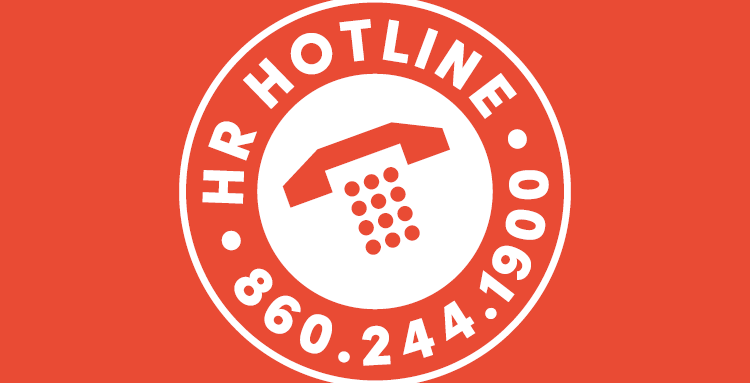HR Hotline: Can We Require Noncompete Agreements?

Q: We’re in the process of doing our annual performance reviews, and as part of that process we’d like our employees to sign a noncompete agreement.
We’d like to make the signed agreement a prerequisite for continued employment, as well as their eligibility for pay increases or bonuses.
Some of our employees are refusing to sign, claiming the noncompete is unenforceable. Can we require that our employees sign it?
A: Yes, though the enforceability of the noncompete agreement will depend on the reasonableness of its terms.
Generally speaking, Connecticut courts view noncompete agreements (and other restrictive covenants, like non-solicitation agreements and promises not to poach employees) as a restraint on trade in a free market.
As such, some noncompete agreements may violate public policy, and will be enforceable only if a court deems the restrictions to be “reasonable.”
A court will weigh the employer’s interest in protecting its legitimate business interests, such as trade secrets and customer lists, against the employee’s need to earn a living.
Connecticut Law
In making this determination, Connecticut courts analyze five factors: (1) the length of time the restriction is to be in effect; (2) the geographical area covered by the restriction; (3) the degree of protection afforded to the employer; (4) the restrictions imposed on the employee’s ability to pursue his occupation; and (5) the potential for undue interference with the public’s interests.
A finding of unreasonableness in any one of the five criteria is enough to render the agreement unenforceable.
Whether an agreement is reasonable or not will depend on the specific circumstances of each case.
So, for example, a court may determine that a noncompete is unreasonable and unenforceable if it requires a former employee to commute an unreasonable distance from home in order to meet the agreement’s geographic restriction.
Or it may be unreasonable if it restricts competition for more than a few years. Whether an agreement is reasonable or not will depend on the specific circumstances of each case.
A very broad time and geographic restriction may be upheld, for example, if it only prevents a former employee from soliciting the employer’s customers, and not the public at large.
Condition of Employment
As with any contract, a noncompete agreement is only enforceable if it is supported by “consideration,” a legal term meaning that the person signing the agreement must receive something in return.
Your question pertains to current employees, as opposed to new applicants coming on board.
if signing a noncompete agreement is a condition of continued employment, a Connecticut court would likely find that it was enforceable.
On Jan. 17, 2023, Connecticut’s Appellate Court ruled that an offer of continued employment is, in fact, adequate consideration to make a noncompete agreement enforceable.
So, if signing a noncompete agreement is a condition of continued employment—the employee will be terminated if they do not sign—a Connecticut court would likely find that the noncompete was enforceable, in that it was supported by consideration.
Consideration may also be in the form of a significant bonus or pay raise—anything of value that the employee receives in exchange for signing the agreement.
FTC Proposal
Employers should be mindful of the fact that, generally speaking, restrictive covenants are disfavored, and they are currently the subject of significant legislative debate.
On Jan. 5, 2023, the Federal Trade Commission proposed a new rule that would ban employers from imposing noncompete agreements on their workers.
In addition, the Connecticut Appellate Court decision described above will likely be appealed.
We won’t know the final results of either of these events for some time.
For now, employers will be well-advised to consult an attorney for guidance on drafting a reasonable, enforceable noncompete.
HR problems or issues? Email or call CBIA’s Diane Mokriski at the HR Hotline (860.244.1900) | @HRHotline. The HR Hotline is a free service for CBIA member companies.
RELATED
EXPLORE BY CATEGORY
Stay Connected with CBIA News Digests
The latest news and information delivered directly to your inbox.


